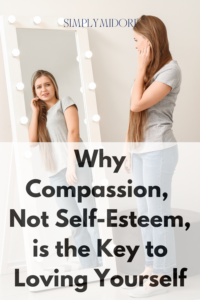Trust After Trauma
Trauma, a devastating consequence of horrific experiences such as assault, childhood abuse, or natural disasters, can trap an individual in an emotional storm. Whether you’re among the countless adult survivors grappling with the shadows of childhood abuse, or you’ve endured emotional abuse, physical abuse, or spiritual harm in your adult relationships, you are now on a healing journey.
This blog is a free guide meant to help you on your journey, teaching you how to trust after trauma and foster healthy relationships. We want you to experience a transformative process that allows you to reclaim your life, your confidence, your hope and rewrite your story.
Before we dive in you may think what do I know about navigating trauma treatment, you can read about my childhood trauma here.
Let’s Dive In
The immediate response often manifests as shock, a numbing disbelief that veils the harsh reality.
Sometimes, though, it can feel impossible to even imagine trusting again; you might find yourself blocking out other people completely instead. Or, you may cling to the idea of trust in the hopes that it washes everything else away, so much so that you trust those who do not deserve it or cling too tight even to those who do.
These two feelings may be the result of a deeper trauma: not just infidelity (though that can absolutely be its own trauma), but also something violent or frightening, something that leaves scars.
Trauma can be broadly separated into two categories: collective and individual.
Collective trauma refers to events such as experiences of war, a natural disaster, or terrorism.
Meanwhile, individual trauma is the experience of such things as assault or abuse.
Our Response To Past Trauma
It is our lasting, disruptive, often subconscious emotional response to these events that encompasses trauma. Such experiences can be terrifying. They can be life-altering. And so it makes sense that, as a result of someone’s stability and peace being threatened, people who have experienced trauma want, above all, to feel safe.
Safety feels and looks different for different people. Sometimes, safety is precisely what the word itself implies: comfort and protection. Sometimes, however, our idea of safety can, in fact, adversely affect our relationships with others and, indeed, ourselves. It can be counterproductive, even unproductive.
How do we even begin to move forward in such a case?
Effects of Trauma on Relationships
To better analyze and understand how trauma affects relationships, we’ll look first at how it manifests in ourselves and our instincts. Then, we will explore how those instincts react when faced with a relationship.
Internal
Traumatized people often face very difficult emotions as a result. Throughout their lives they may feel ashamed, alone, anxious, guilty, unlovable, frightened, or even numb. Even worse, they may have trouble expressing any of these feelings.
(I Sometimes Find Myself Crying For A Stint Not Because Of My Past As Much As My Emotions Sometimes Feel Overwhelming)
Depending on the nature of the trauma, they may expect danger or betrayal, and so find it very difficult to trust others. They might go out of their way to avoid conflict or give in quickly to assumptions of abandonment or rejection; similarly, they may have difficulty believing in another’s love, even after multiple reassurances.
Traumatized people may feel angry at their own perceived helplessness or lack of control, so in response, they might try to control others or a situation (ISTSS, 2016, para. 3).
None of these feelings are wrong. None of these reactions are wrong.
Our discussion here is never meant to introduce anyone to more feelings of shame or to feel like they have failed in some way. Rather, we wish only to introduce the idea of habits and patterns and to give you the tools to recognize them in yourself if they are there, as well as to mend them if need be.
Your trauma is not your fault, nor is how you react to it, but you can absolutely retake charge of your life and of your relationships, even if that trauma is adversely affecting them, even if it feels like an impossible task.
External
So, how can trauma affect our relationships?
“Being traumatized is akin to being betrayed” (Lachmann, 2017., para. 6).
Betrayal often unearths feelings of shame, hurt, fear, and confusion. This is often how trauma manifests, too. But our reactions to this can differ quite significantly.
Someone who has experienced trauma may approach their relationships in one of two ways: extreme codependency or extreme mistrust.
In the first instance, we latch onto someone else. We feel frightened and alone, overwhelmed and unstable—so when a friend or a romantic partner offers company, affection, and stability, we cling to that possibility.
Essentially, we are trying to heal ourselves via another person.
This approach undermines our relationships in two ways. One, we idolize another person, putting them into a position that is impossible. Lofty expectations in any relationship will lead to hefty disappointments.
For while our loved ones may comfort and console us, they cannot do our internal work of healing and growth for us.
Inevitably, if we expect anyone to love us perfectly, they will fail.
This is especially true of long-term relationships because we believe the other person has known us long enough to understand us and help us in exactly the way we need. So when we feel unfulfilled, abandoned, or even rejected—even if the other person has not meant to cause any of those feelings—we blame them.
Their inability to be perfect is now their insensitivity. Their failure to heal us is proof of their lack of feeling for us. And again, even if they convince us again of their love for us, we may place them right back on that pedestal, where they teeter on the edge.
This approach puts enormous pressure on the other person. Our family, our friends, and our partners do not want to disappoint or hurt us; they want to help us as best they can and see us happy.
But no matter how much someone loves us, they cannot give us everything we need. The pressure to do so, if they find themselves in that situation, can be utterly overwhelming and, in fact, can sabotage the relationship altogether.
When faced with our disappointment and fear—whether a result of trauma or not—the other may begin to feel insufficient, powerless, unappreciated, or even misunderstood themselves.
Obviously, this puts enormous strain on a relationship and may fracture it altogether.
This approach also inhibits our own growth by denying our capability to foster it. When we depend so heavily upon another, when we believe—actively or not—that the love of another will save us, we undermine our own agency, our own strength, and our own courage.
It demonstrates a deep lack of trust in ourselves.
Traumatized people absolutely have the ability to heal. They can do so with the support of their loved ones and with the guidance of trusted therapists, but any attempts to heal by valuing another more than themselves will inevitably fail.
Our relationship to ourselves, drives all other relationships by:
-
We see the world through how we expect it to treat us and what we think we deserve.
-
So when we think we deserve the world, we tolerate no less—even of ourselves.
-
When we expect the world to treat us horribly, of course, we adapt accordingly.
Some, when processing trauma, may resist deep relationships altogether. They may, having faced betrayal, disappointment, abandonment, or rejection, refuse to face such things again and close themselves off completely.
This, too, is another way to feel safe. Alone, no one can disappoint them. Alone, they cannot feel the pain of being left. Alone, they cannot be hurt. These people may prefer to handle their struggles themselves because they do not want to be a burden. They may believe that no one would understand their struggles in the first place and so refuse to reach out and try. They may believe they don’t deserve external support or love at all (Brickel, 2017, para. 5).
This response to trauma, too, demonstrates a lack of trust—this time in others. And perhaps also in ourselves, if we do not believe in our own strength to face pain again, or our courage to be vulnerable, or our worthiness in general.
While very different, these two responses to trauma indicate that trust has been broken in a deep, profound, and scarring way. Trust in others, in ourselves, in life. But most anything can be repaired.
How to Overcome Trauma and Develop Healthy Bonds
It is the nature of trauma to feel incredibly isolated, to feel like you are trapped behind a wall of pain and fear, and no one can reach you, no matter how loudly you call for help. So you reach out so desperately that perhaps you cling too hard.
It is the nature of trauma, too, to convince us that, actually, it’s safer behind that wall, even with all the pain and fear. At least there, no other pain and fear can get in. Nothing else can touch us.
These feelings are only natural.
But they are not feelings that have to remain with you for life. No matter how trauma has affected your self-worth, your approach to your relationships, or even your quality of life, there is always a way to emerge from behind that wall.
Extreme Ownership
One way to do this is to take ownership of the feeling completely. To recognize that it is your own, that your memories are your own; no matter how painful or unpleasant, they belong to you and you alone.
This is not a sign that you are, indeed, alone behind that wall with your pain. Rather, it is a healthy and productive reminder that others are often behind their own walls, with their own pain. They may need a little help understanding yours.
Your friends, your parents, and even your partner most likely do not feel what you are feeling. They may not immediately understand. And they will not know, instinctively, exactly what you need them to say and how you need them to act, exactly when you need it. (This applies to any relationship, traumatized or not.)
No, you must help them to feel, understand, and know these things. It may seem exhausting or frightening, and you may wish that you didn’t have to explain or ask for help.
But support from others will be so much stronger and so much more helpful if you explain the ways in which you need that support.
You must help others to help you.
By doing so, you allow the other person in the relationship to remain fallible, to remain human, even while you give them the tools they need to support you.
By acknowledging your own needs and communicating them in a healthy way, you also allow yourself the space and opportunity to grow on your own. If you find the prospect of accepting help or even cultivating relationships difficult, try to remember the worthwhile aspects of relationships.
The feeling of security that comes with any relationship is attainable.
Try Trust
Be patient with yourself, but also push yourself to test your capability to trust others. Let others prove themselves to you—open a tiny window in the wall, as it were. You may find it’s easier said than done. And you may find that you’re grateful that you tried.
Even if your worst fears are realized—now you know you are strong enough to overcome them. Even by trying, you’ve affirmed in your mind that you are deserving of stable and fulfilling relationships. You know you can try again.
In both these instances, considering how to strengthen a relationship from a trauma perspective, it’s important above all to remember that—as with every problem discussed in this book—communication is crucial not just for your own needs but also for the other person’s.
In any relationship, we must recognize the other, but especially in a relationship that needs extra support or care.
Express your gratitude to the other person for their care and affection, and acknowledge their own feelings and perspectives. They might be feeling any number of strange or difficult things, too. There is no suffering competition, even when dealing with trauma, and in a healthy relationship, everyone’s feelings are important and valid.
Recognize what may be hard or painful for them.
Above all, remember that they are trying, just as you are. Even if it seems effortless for them, even if you think that it should be effortless, nothing is ever as easy as it seems for anyone.
Concretely, in this situation, it helps to follow our guidelines for healthy communication and boundary setting. Create a sense of safety and stability that surrounds any such discussions or interactions: set a time to talk about heavy topics and a time to not, engage in active listening, and regulate your emotions with breaks.
Also, explain if something makes you uncomfortable, or ask for something if you find you need it. Setting boundaries—the guards on your body, thoughts, emotions, privacy, and time—can provide a strong sense of safety if you cultivate them properly around your own comfort and needs.
Both of these practices can help to strengthen our sense of self-worth and to cultivate trust.
Conclusion
The work to overcome trauma will not happen overnight, nor is this a comprehensive guide to trauma and relationships. Hopefully, this blog has provided some encouragement and given you the opportunity to face these obstacles.
Our goal is to provide a framework for developing trust in relationships, no matter what kind no matter the people in them. Taking it as a whole and using the lessons throughout our blog will help you approach relationships with a positive, mindful perspective, one that acknowledges the worth of all people involved, even when they feel unworthy.












